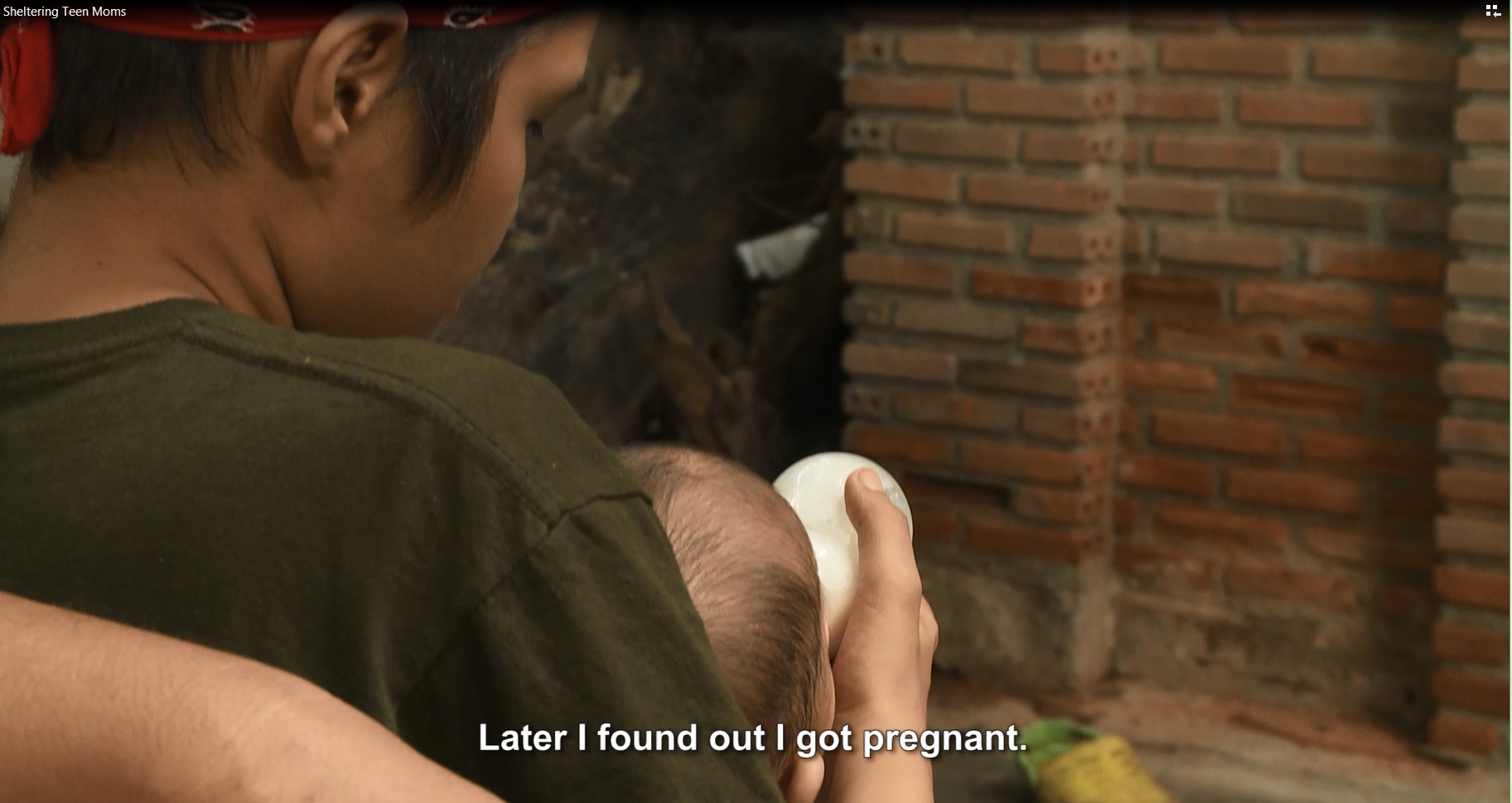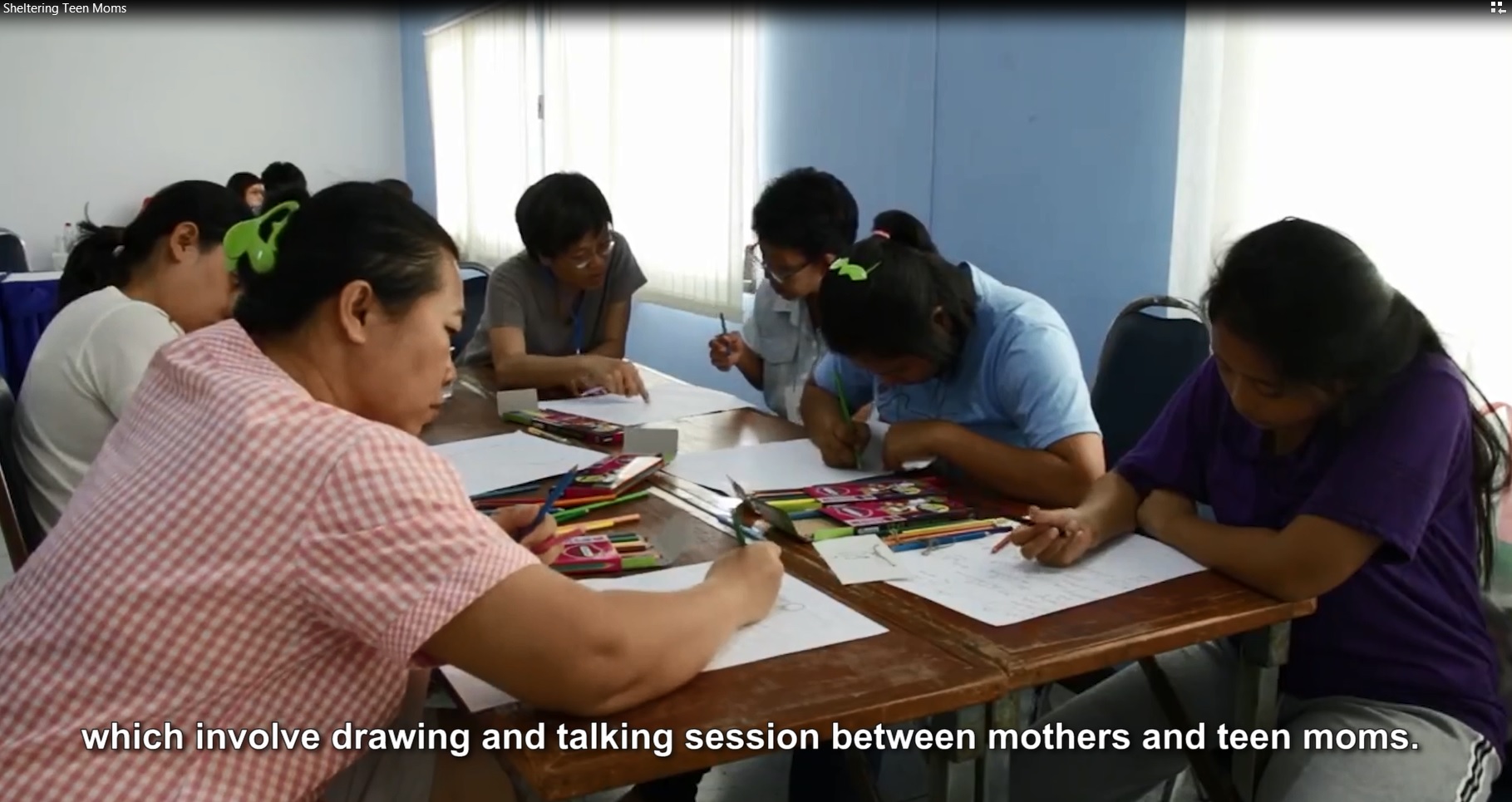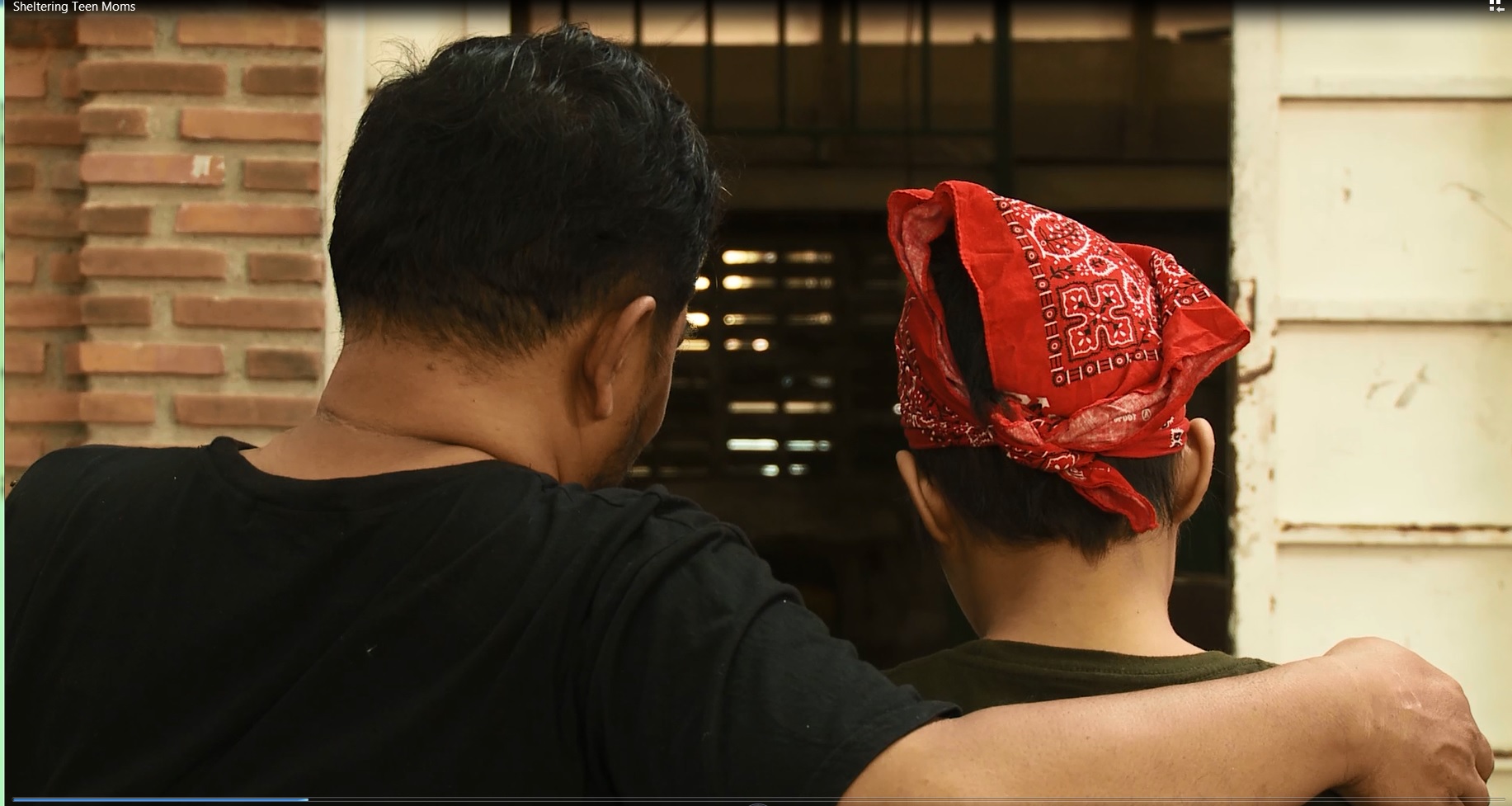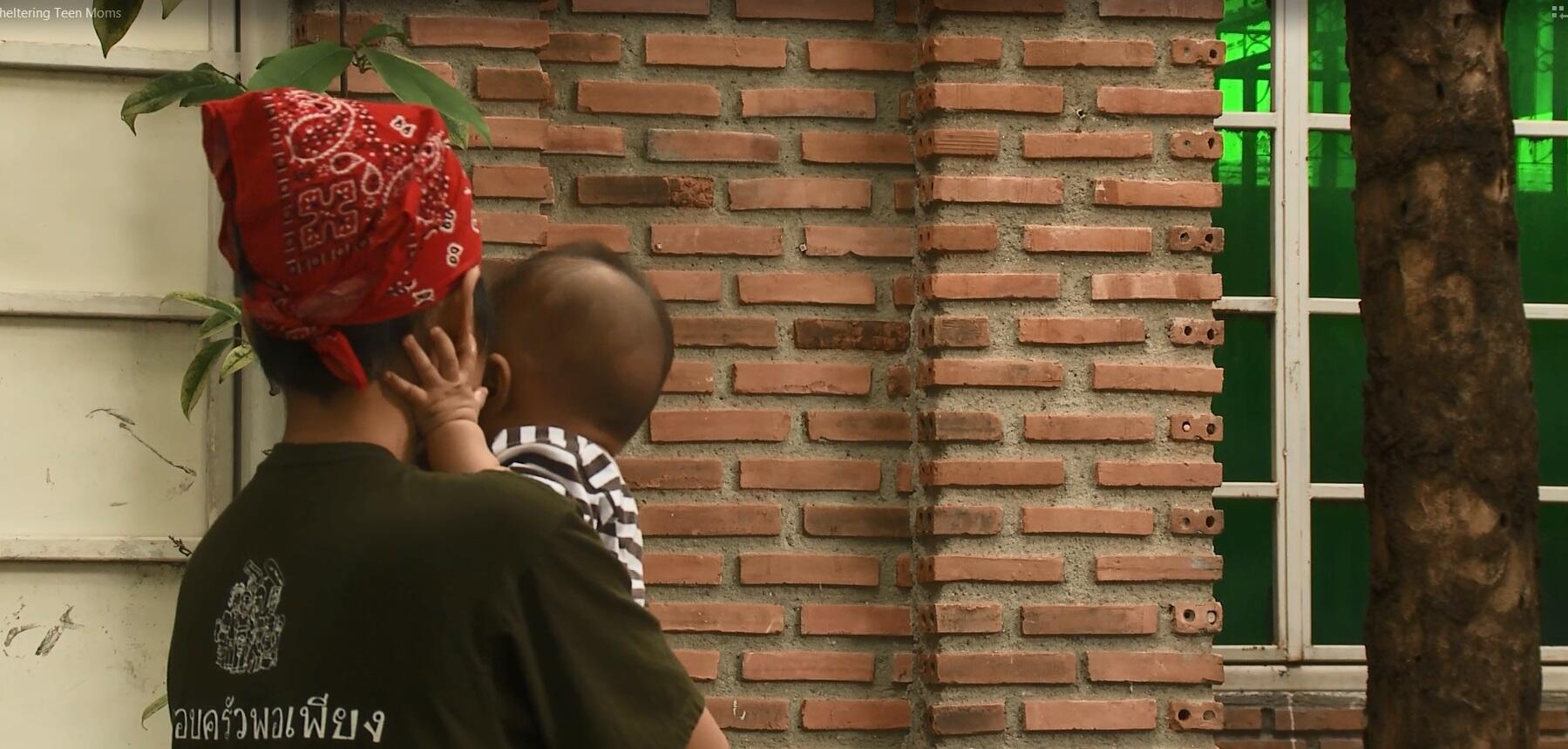Watch video of this story, click here.
Mon* started her relationship with a guy when she was 14 years old. They met on Facebook. After dating for a few months, “he wanted to have sex. He did not use any protection. I was scared at first but he said he would take all responsibility,” Mon recalls.
Not long after that Mon got pregnant. Her boyfriend failed to keep his words. She turned to her mother for help. Her mother took her to a local hospital, because she was only 14 years old, the hospital recommended her to go to the Emergency Home—a private-run shelter for young mothers that provide food, medical care and also gives vocational classes, counseling and psychosocial support. The Emergency Home is under the Association for the Promotion of the Status of Women (APSW). UNFPA Thailand supports the Emergency Home to assist teen mothers in providing accommodation, pre-natal and child care training, psychosocial support through group support therapy, legal consultation, and other necessary referral services.
Mon recounts her stay at the shelter, “I was so stressed out before coming here. I think society outside [this place] is so bad, always criticizing. When I saw happy people, I felt sorry for myself. Here I can talk to social workers and everyone else. They cheer me up and that makes me feel good.”
Fang* and her 11 month-old daughter lives with her parents in southern Bangkok. Fang got pregnant when she was 16. “When I found out I got pregnant, I was shocked,” says Fang. “I told my boyfriend and we were clueless. We weren’t ready for this.”

Fang’s mother took her to the Emergency Home in northern Bangkok. “No mother wants to deal with this problem. My daughter is too young to have a child. ” says Fang’s mother.
“When I was at the Association, they provide therapy activities with involves drawing and talking session between mothers and teen moms,” Fang explains how the assistance at the Emergency Home, supported by UNFPA, helped her. “Also, we learn how to take care of our baby. The therapy reduces my stress so I am more relaxed because I vented out my feeling.”
Since the group support activity has been introduced, more teen mothers and their Family decide not to leave their babies behind at our orphanage. Under the group support activity, parents of teen moms discuss, exchange views and support one another to assist their pregnant daughters.

“We have worked with parents over the years,” says Nattiya Thongsrikate, Director of the Emergency Home. “We have learnt that we can’t only work with teen moms in order to solve teen pregnancy. Teenagers can’t cope this problem alone. They need adults for consultation and assistance. ”
Among all the shelter’s cases, thirty per cent comes from unintended pregnancy, mainly from sexual exploitation and unprotected sex. “Here we teach sex education especially for those under twenty. We teach them about precautions such as contraceptive implants that can prevent pregnancy for five years.” Nattiya explains. “For example, a 14 year-old girl who got pregnant now. It should take her another five years to get pregnant again. By then she would be more mature.”
Being able to continue the education is important to ensure that teen mothers could realize their potentials. This is one of the main measures in the Prevention and Solution of the Adolescent Pregnancy Problem Act, B.E. 2559. Services at the Association also include baby care for teen mothers when they are ready to go back to education. Many of them opt for part-time work so they can pay for the cost of raising baby while continuing their study under the non-formal education.

Fang comes from a big Family. Her Father has high hope for his nine children. “We have a rule of thumb in this house—all my children have to graduate at some point—no matter what crisis they have. We have to support them because we know not many successful people can succeed in life without education. In our society, when you enter a work place--you are a labor. You will get paid according to your education. That’s the truth,” says Fang’s Father.
Mon left the tenth grade when she got pregnant. She plans to go back to school. She will take class at Sunday Vocational School. “I want to take care of my baby during the week while on Sundays, my mother will look after my baby,” says Mon. “I know now that parents are the only people who truly love me—not men. I want my story to be a lesson for all girls. When men say they love you, they don’t always mean it.” Mon speaks with tears in her eyes.
*Name changed to protect privacy.



